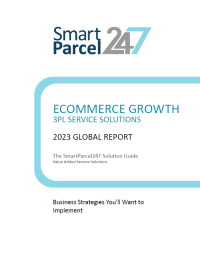As an e-commerce retailer, offering an easy refund policy is a great way to attract new customers and retain old customers. If customers see that you are willing to “take one on the chin,” in order to keep them happy, they are more likely to trust you with more purchases.
There are some less-honest people, however who will take advantage of your kindness for their own personal gain. This is known as return fraud. It is so common and so serious that roughly 24 million dollars are stolen from retailers using return fraud each year.
In the e-commerce world, especially, there are more and more fraud trends popping up. As an e-commerce business owner or decision maker, it is important that you know how to protect your business from these fraudsters.
Before you can prevent this fraud, however, you need to understand some of the main ways fraud is occurring. Here are some of the common fraud trends and measures you can take to protect your business.
Curbside Pick-Up Fraud
There are multiple other names for this type of return fraud, including “Buying online and picking up in-store” (BOPIS) and “Buy online pickup at curbside” (BOPAC) fraud. This type of fraud occurs when an business has both an online and an in-store presence.
Fraudsters can use both channels to steal from businesses. Before the pandemic, curbside pickup was not very common. However, once Covid-19 hit, businesses across the globe rushed to find ways to sell their products while maintaining social distancing. Curbside-pick-up became immensely popular in the states, and now that customers are used to the convenience, it is unlikely to ever cease.
The problem is that when multiple channels for orders and payment are introduced, there are more opportunities for dishonest activity.
While curbside pick up was still small, it was manageable to run with minimal fraudulent activity. However, now that millions of Americans use and depend on it, it is harder to keep track of every customer’s orders. This makes it easier for fraudsters to slip through the cracks.
There are a couple ways fraud can be committed through curbside pick up. One of these is if you offer multiple payment methods. While offering a variety of options when it comes to payment can be helpful in keeping your customers happy, it can also have the potential for a few risks.
If your staff is under the strain of a particularly busy day, for example, they may not be as thorough in checking whether or not a customer has paid online before fulfilling their order. A less-than-honest customer could order online, opt to pay in-store, and then leave without ever making the payment.
Another way curbside fraud happens is if a fraudster picks up another customer’s order. Like the previous example, if your store is flooded with curbside orders, they may not be as diligent in checking ID and receipts, and a thief could go home with someone else’s goods.
Friendly Fraud
Friendly fraud is an e-commerce-specific type of fraud also known as chargeback fraud. It occurs when a “customer” orders a product online and then claims that they either never ordered the product or that the product never arrived.
This is a common type of fraud and about 1,740 American retailers get these types of claims every month. Many of them are legitimate, of course. But, many of them are fraudsters seeking to take advantage of you and your business. If the thieves can’t get you to issue a return, they will often dispute the claim with their card provider.
Fake Merchandise Fraud
Another common type of fraud is to buy an item, replace the (usually valuable) item with something of the same wight, re-package it, and return it. This is most common in brick-and-mortar stores where employees often don’t check to see whether the item is intact or not before issuing a refund.
However, if you have a very lenient return policy and do not thoroughly inspect returns, this type of fraud could also be used on your e-commerce business.
How to Protect your Business from Return Fraud
When it comes to protecting against fraud, the most important thing is taking a look at your return policies. A good return policy is a must-have for e-commerce businesses, but that does not mean it has to be so lenient that it opens your business up to harm or fraudulent behavior.
Whether you’re re-evaluating your return policy or coming up with one for the first time, make what customers can and can’t do clear to them. As long as you make it easy for them to make legitimate returns, it is okay to be somewhat strict. Honest customers will understand.
Make sure that your employees do thorough ID and receipt/document checks for every order, whether in-store or online. This lessens the likelihood of a fraudster being able to take advantage of your store. Your employees should be ready to take customers’ card or cash at the “curb” (or receipt if they paid online), regardless of how busy it is.
Ensuring this comes with proper training and protocol. If employees are properly trained, it will cut back on a lot of fraud that dishonest individuals may otherwise get away with.
You should also make sure employees always inspect returned items to ensure the original item was returned.
Consider a 3PL to Help with your Return Policy
Returns are important, but it’s important to do them right for the sake of your e-commerce business. To help you fulfill these important matters, you might want to enlist the help of a third party logistics company such as Smart Parcel 24/7.
We have access to a vast network of the most reliable vendors and carriers across the globe. If anyone can help you to make returns fast and simple for your customers, it’s us.
We will put together a network, specifically tailored to your reverse logistics needs, ensuring fast product return to you and allowing for quick refunds to your customers.
Related Article: Why Your E-Commerce Business Needs a Return Process



